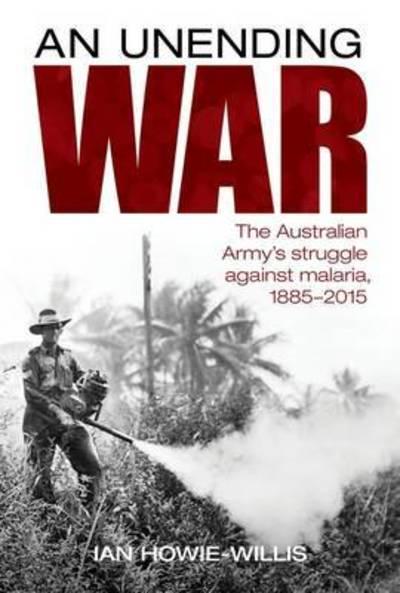Last year I deployed as a Medical Officer in support of a company sized infantry training activity on the northern coast of Papua New Guinea (PNG). Despite my briefs to the troops on using repellent, covering skin at dawn and dusk, taking doxycycline, and supporting the regular ‘fogging’ I’m not sure everyone took the threat of malaria seriously. On return to Australia when I learnt of two malaria cases from the trip I’ll admit to being as surprised as others. I shouldn’t have been. We were operating in one of the most malarious regions of the planet, and as Ian Howie-Willis highlights in his book An Unending War: The Australian Army’s Struggle Against Malaria– malaria has ‘been the scourge of armies throughout history’.
Bites not Bytes
Before you stop reading this; I get it – Disease and Non-Battle Injuries are a large contributor to casualties in war but surely their analysis doesn’t make for exciting reading? With the current trend in PME to consider a future of drones, satellite mounted lasers and evil Directorates using microchip viruses to turn our weapons against us, there is little space for the humble mosquito. However, if you were to deploy tomorrow it’s the bites and not the bytes that should concern you most. The mosquito has been wreaking havoc on military planners for centuries, and often it has only been through good military leadership, rather than medical mastery, that it has been kept at bay. Using experiences of the Australian Army as a modern professional force Howie-Willis provides a very readable and succinct overview of when malaria has halted Australian Army operations and even threatened to defeat it.
‘Regret that my army is in hospital with malaria’
If you only start reading this book out of a sense of duty (I did too!) you’ll be pleasantly surprised. Early chapters provide a simple explanation of the disease process, before skipping into a reminder of the armies in history that have succumbed to malaria including those of Alexander the Great, The Roman Empire, Genghis Khan, Napoleon, both sides of the American civil war, and the majority of combatants in both WWI and WW2. One story tells of a French general who when given the command to attack replied ‘Regret that my army is in hospital with malaria’. From there the book focuses on Australia’s war with malaria including Syria (topical at present) in 1918, PNG in 1942-43 and Vietnam in 1968. Importantly the battle against malaria in these cases was only won when the tactical commanders took advice from their health planners and enforced a range of engineering, discipline and health measures to combat this enemy.

Howie-Willis’ sobering list of conclusions quotes Aldous Huxley’s proclamation ‘that men do not learn very much from history is the most important of all lessons of history’ when assessing that whatever one generation of Army commanders learn about malaria will soon be forgotten by the next. Another conclusion is that too often the advice of military malariologists goes unheeded leading to the loss of operational capability. So, if you’re a current commander or aspire to be one and you’re not familiar with malaria and its impact on your forces – then perhaps this book will help you break Huxley’s maxim.
The war sadly remains unending in our fight against the common mozzie. I spoke with the two Malaria victims from PNG (who were happy for me to tell their experiences). Both reported being good with their malaria prevention habits. They covered up at night, they were diligent with doxy (perhaps missing the occasional dose once or twice on the whole trip but taking it later in the same day or next day) and didn’t recall getting bitten very often. On return to Australia they took their eradication medications as prescribed. It was the bouts of high fevers, shivering and fatigue in the following weeks that caused them to report to sick parade. Even following best practice today we will lose soldiers to vector borne diseases, but we must continue the fight. Mosquitos have been one of our most damaging enemies for centuries and they’re not buzzing off anytime soon – the best prevention is preparation and Howie-Willis provides this in ‘insecticide-dipping’ buckets.
About the Author
CAPT James Savage is a Medical Officer in the Australian Army. He spent eight years as an infantry officer prior to changing trades.

